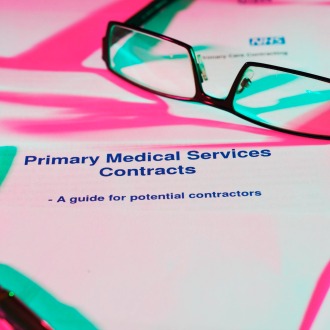We know our PMS review is in the pipeline. What can we do to prepare?


While the Department of Health wishes to reduce variations in funding between GP practices, it will be aware of the fragile state of primary care and the risk it will start to tear apart if it demands sudden funding changes. In some places, PMS funding has already been pared back, and the area team may not feel the review is a priority. This may buy you time, but the review will come eventually so you need to be ready.
The single most important requirement is to collect as much information as you can about the reasons your PMS budget is set at the figure it is. Be aware that area teams may only have spreadsheets that they were sent when the PCTs were wound up, and may have no narrative at all about how the numbers were arrived at. Once you have this, you will need the help of a really good GP accountant to prepare some projections comparing the effects of staying with a reduced PMS budget or switching to GMS. These need to look far enough ahead to include things like the redistribution of the Minimum Practice Income Guarantee (MPIG).
Your LMC will be able to help, and should be co-ordinating a joint approach among its PMS member practices. If you cannot make your figures work, the LMC will be invaluable in negotiations with the area team, particularly if the only option is to give up your contract.
Dr Harry Yoxall is the medical secretary of Somerset LMC.

It is important to note that there is no standard approach to the availability of transitional funding for practices facing a cut in their PMS income or a reversion back to GMS. So you should start preparing for negotiations now by asking your accountant to compare your PMS contract funding to what you would receive under a GMS contract. This will establish the level of premium funding you receive under your PMS contract since this is likely to be the money that will disappear.
It is a misconception that the premium funding is growth money alone. There is no single basis for how this calculation is undertaken as it will depend on what is included within your local PMS contract. Practices in certain areas may find that the premium is not as large as they had feared. For example, there will be additional funding for temporary residents, reinvested MPIG money and perhaps dispensing fees and other enhanced services that are not within your PMS funding and will not be reviewed.
But once the level of the funding in danger is known, start reviewing your services and opening times and think about what would need to be changed if that funding was cut. Prepare a report noting the impact on patient services, referrals and likely additional costs to secondary care.
If there are other PMS practices in the area, work together with the local LMC to avoid being picked off one at a time. Together you will have a better chance to negotiate transitional funding on a return to GMS funding levels or renegotiate your PMS contract and services.
Lizzy Lloyd is a medical accountant and a partner at Lloyd Hubbard, Essex.
Pulse October survey
Take our July 2025 survey to potentially win £1.000 worth of tokens













